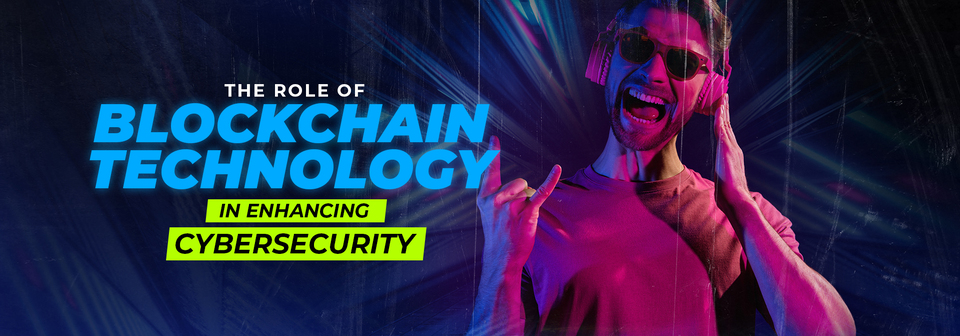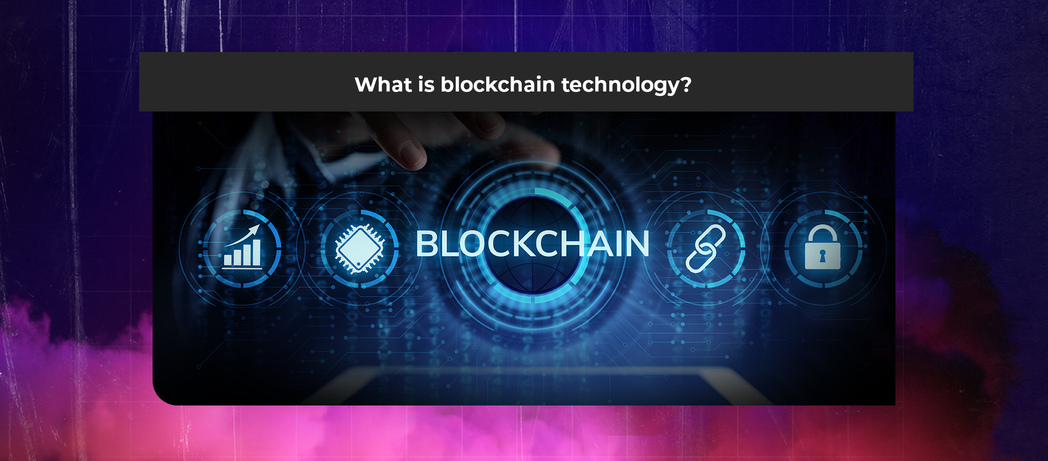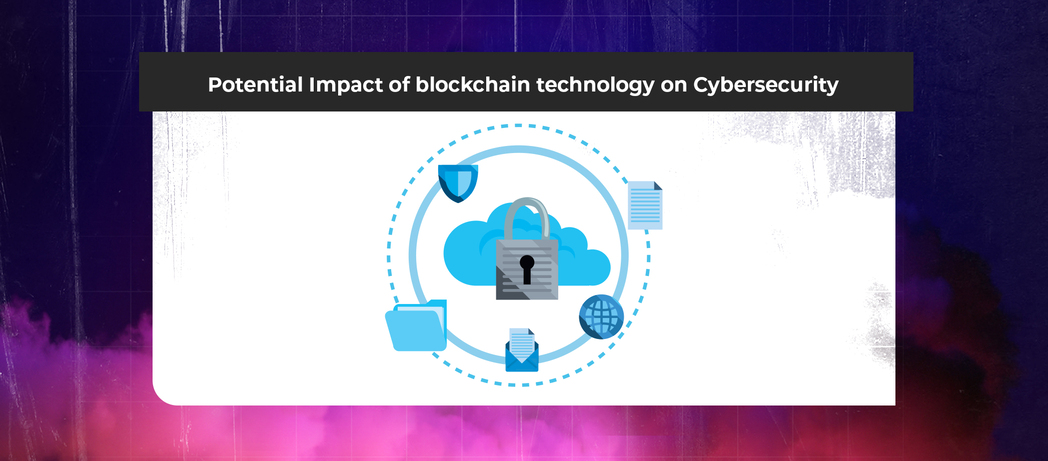

The role of blockchain technology in enhancing Cybersecurity
In the current digital age, cybersecurity has grown in importance. With the ever-increasing reliance on technology and the internet, the threat of cyberattacks has grown substantially. In response, various solutions have been developed to help safeguard against these threats, including the use of blockchain technology. Blockchain technology was initially developed as the underlying technology behind Bitcoin, but its potential applications have since expanded far beyond the realm of cryptocurrency. One area where blockchain technology is now being increasingly used is in enhancing cybersecurity.
This technology has unique features that make it well-suited for securing data and preventing cyberattacks. For example, the decentralized nature of blockchain means that it is not controlled by a single entity, making it more resistant to attacks. Additionally, the use of cryptographic protocols and digital signatures means that data stored on a blockchain is highly secure and tamper-proof.
PeoplActive is an ISO 27001:2013 certified leading tech hiring platform. By utilizing an exclusive network of 4000+ Silicon Valley calibre tech talent specialized in 100+ in-demand IT skills, it was pretty easy for businesses to hire game-changing engineers and developers in just 48 hours. So, if you want to accelerate your business, schedule a quick call with our experts now.
n this blog, we will explore the role of blockchain technology in enhancing Cybersecurity. We will discuss the various ways in which blockchain can be used to secure data and prevent cyberattacks, including the use of blockchain for identity management, secure data storage, and secure communication. We will also examine some of the challenges associated with using blockchain for cybersecurity and how these challenges can be addressed.
Overall, the potential of blockchain technology to enhance cybersecurity is significant, and as the technology continues to evolve, it is likely to play an increasingly important role in protecting against cyber threats.
[ez-toc]
What is blockchain technology?
Data can be stored and transferred securely and openly thanks to blockchain technology, a distributed ledger system. A blockchain is essentially a digital ledger of transactions that is stored across a network of computers, rather than on a centralized server. Each transaction on the blockchain is verified by a network of nodes before it is added to the ledger. Once a transaction is added to the blockchain, it cannot be altered or deleted, making it a secure and tamper-proof way of storing and transferring data.
The name “blockchain” comes from the way the technology works. The blockchain is updated in a sequential, linear manner by adding blocks of related transactions. Every block has a distinct digital signature, known as a hash, that connects it to the block before it on the chain. This creates an unbroken chain of blocks that forms a permanent and transparent record of all transactions on the network.
Due to its decentralized design, which prevents it from being controlled by a single party, blockchain technology is more secure and resistant to attacks than conventional centralized systems. Blockchain technology has a wide range of potential applications, including cryptocurrency, supply chain management, healthcare records, and more.

How can blockchain technology enhance Cybersecurity?
Blockchain technology has the potential to enhance cybersecurity in several ways:
Decentralized Architecture
One of the main advantages of blockchain technology is its decentralized architecture. This means that there is no single point of control, making it more difficult for hackers to attack and compromise the system. Each node in the network holds a copy of the blockchain ledger, and any change in the ledger requires consensus from the network, making it nearly impossible to alter data on the blockchain without detection.
Immutable Records
The data stored on a blockchain is immutable, meaning that once a transaction is recorded, it cannot be altered or deleted. This helps prevent data tampering and ensures the integrity of the data. This feature is particularly useful for applications that require a high level of data security, such as financial transactions, healthcare records, and supply chain management.
Public Key Cryptography
Blockchain technology uses public key cryptography to ensure secure transactions. Each user has a unique public key and private key, and transactions are signed with the user’s private key. This makes it virtually impossible for anyone to intercept and alter transactions without the user’s private key.
Smart Contracts
Smart contracts are self-executing programs that are stored on the blockchain. They can be used to automate complex processes and enforce rules without the need for intermediaries. Smart contracts are tamper-proof and transparent, making them ideal for applications that require trust and transparency.
Distributed Denial of Service (DDoS) Attacks
Blockchain technology can also help mitigate the impact of distributed denial of service (DDoS) attacks. DDoS attacks are designed to overwhelm a system with traffic, making it unavailable to legitimate users. By using a distributed architecture, blockchain networks can resist DDoS attacks by distributing the load across multiple nodes.
Potential Impact of blockchain technology on Cybersecurity
Blockchain technology offers a more transparent and secure method of data transmission and storage, which has the potential to transform cybersecurity. Its decentralized and tamper-proof nature makes it ideal for protecting critical data and systems from cyber-attacks. Here are some potential ways blockchain could impact cybersecurity:
Identity management
Blockchain technology can be used to create a decentralized and secure identity management system. Instead of relying on centralized systems that are vulnerable to attack, users can store their identity information on a blockchain, which is secure and tamper-proof.
Supply chain security
Blockchain technology can be used to create a transparent and secure supply chain. By tracking products and their movements on the blockchain, companies can ensure that their products are authentic and have not been tampered with.
Cyber threat intelligence
Blockchain technology can be used to create a decentralized platform for sharing cyber threat intelligence. By sharing information about threats and attacks, organizations can work together to identify and respond to cyber threats more quickly and effectively.
Secure data storage
Blockchain technology can be used to create a secure and decentralized data storage system. Instead of relying on centralized servers that are vulnerable to attack, data can be stored on a blockchain, which is tamper-proof and resistant to attack.

Conclusion
Blockchain technology has a significant role to play in enhancing Cybersecurity. With its decentralized storage, immutable record, digital signatures, smart contracts, public key cryptography, and consensus mechanisms, blockchain technology provides a highly secure and transparent framework for storing and transmitting data. By utilizing blockchain technology, businesses and individuals can ensure that their data is safe from cyberattacks and unauthorized access. The decentralized nature of the blockchain network makes it difficult for hackers to access and manipulate data, and the use of digital signatures and public key cryptography ensures that data is secure during transmission.
In today’s digital world, where cyber threats are a constant concern, the use of blockchain technology can provide a robust solution to enhance Cybersecurity. While blockchain technology is still in its early stages, its potential to revolutionize cybersecurity is enormous. As more businesses and individuals adopt this technology, we can expect to see a significant reduction in cyber threats and a more secure digital ecosystem.
PeoplActive’s Cybersecurity Consulting Service provides businesses with the necessary expertise to protect against data breaches. By developing comprehensive security plans, our consultants work with businesses to identify potential risks and vulnerabilities in their systems and develop strategies to eliminate those risks. Ongoing support is also provided, ensuring that businesses are kept up to date with the latest Cybersecurity threats and that their security measures remain effective. With PeoplActive‘s Cybersecurity Consulting Service, businesses can rest assured that their sensitive information is well protected and that their systems are secure from potential attacks.
Kartik Donga
Founder & Strategic Defense Architect, PeoplActive
Kartik Donga
Founder & Strategic Defense Architect, PeoplActive














